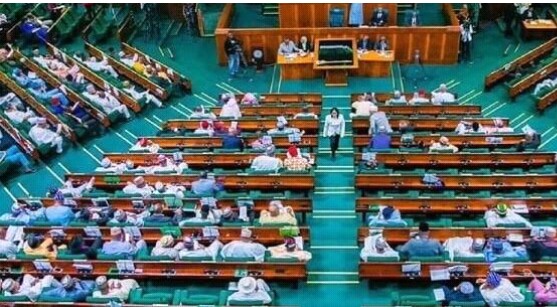
The Nigerian House of Representatives has established a COVID-19 Strategic Response Team, CRST, to develop interventions and reforms to drive economic diversity and innovation in the non-oil Sector of the country’s economy.
The team comprises experts in various fields is to update the 9th House of Representatives Legislative Agenda to reflect the post-COVID-19 realities and priorities.
The Speaker, Femi Gbajabiamila announced this at the House resumption after five weeks suspension of plenary following the outbreak of COVID-19 Pandemic.
Mr. Gbajabiamila expressed concern over the effect of the pandemic on the global economy, stressing that the House in collaboration with the executive arm must consider the crises as an opportunity to make hard choices for the nation to survive.
“We have already begun to see the effect in millions of lost jobs, lost incomes, lost revenue and severely diminished productivity.
”In the past week, we saw oil prices fall into negative value. Our country, heavily dependent on crude oil income, has seen a drop in our revenue so severe that we risk failing to meet even the most basic obligations of governance.
”There are no longer any sacred cows, protected spaces or classes. Every area of our national health policy, economic policy, tax policy, education policy and security architecture are now on the table for reform. We must turn this moment of profound crises into an opportunity to make the hard choices we have too long deferred but can no longer avoid if we are to survive as a nation.
”This House of Representatives is ready, and I trust that we will find allies in government and across our country who are prepared to make the changes that our country needs to survive, recover and thrive,” the Speaker explained.
Economic stimulus bill
Mr. Gbajabiamila also called on the executive arm of government to take advantage of the interventions of legislators to provide palliatives to most vulnerable Nigerians, while pledging to pass the second economic stimulus bill.
“Let me also at this time call on the administration to take advantage of the unique insights of federal legislators in targeting the distribution of some essential palliatives.
”When the Nigerian government interventions do not reach those in need, we are the first to receive complaints and have to explain to our constituents the reasons they do not qualify or why they have been left out.” He argued.
China case
On the stigma, harassment and abuse meted on Nigerians and other Africans in China, Speaker Gbajabiamila call on the government of the Peoples’ Republic of China to ensure that Nigerians and Africans receive the human right protections to which all citizens of the world are entitled to.
He said “As we contend with the challenges of this pandemic and an economy in decline, we must not lose sight of the plight of our citizens in foreign lands who suffer stigma, harassment and abuse at the hands of their hosts. A few weeks ago, the House intervened in the matter of Nigerian nationals in dire circumstances in China.
”The Minister of Foreign Affairs, Geoffrey Onyeama has been consistent in his defense of the rights of Nigerians abroad and the House commends his efforts. Yet, despite his efforts and the assurances given to the House by the Chinese Ambassador in Nigeria, there are still reports of ongoing mistreatment of Nigerians in China…Where there are credible cases of discrimination, harassment or rights abuses against our citizens, swift and visible action must be taken by the Chinese authorities to safeguard lives, livelihoods, property and the sense of human dignity of Nigerians and fellow Africans ,” he explained.
Gbajabiamila stated; ”Extra-judicial punishments including unlawful evictions or detention of persons of colour under the guise of “quarantine”, are not acceptable. Any abuse of human rights or departures from the strictures of international law betrays our shared humanity and calls for the most stringent and globally coordinated response if it persists.”
The House leader also commended the efforts so far in containing the deadly virus in Nigeria.
By Mercy Chukwudiebere











